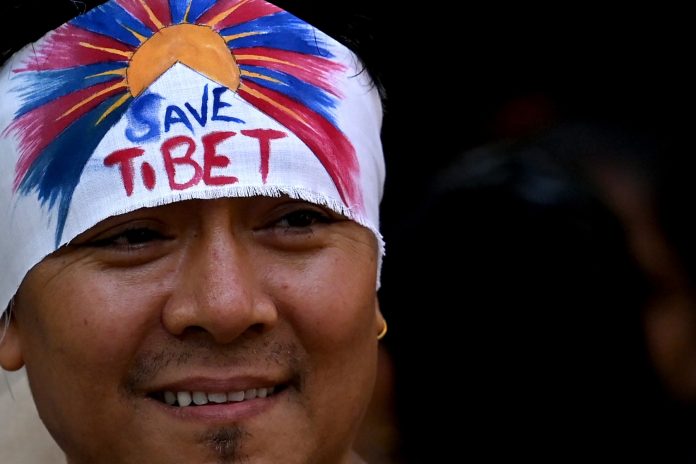A U.N. human rights expert has expressed concern that allegations of mandatory vocational training programs and labor transfer in China’s Tibet Autonomous Region may affect the human rights of Tibetans, similar to the situation with Uyghurs in Xinjiang.
Tomoya Obokata, a Japanese who is the U.N.’s special rapporteur on contemporary forms of slavery, and other U.N. experts that the programs are being used to undermine Tibetan religious, linguistic and cultural identity, and to monitor and politically indoctrinate Tibetans.
In a release from the U.N. Office of the High Commissioner for Human Rights on April 27, Obokata and the others warned that the programs could lead to forced labor.
Hundreds of thousands of Tibetans have reportedly been “transferred” from their traditional rural lives to low-skilled and low-paid employment since 2015, according to the U.N. expert.
Obokata said he was waiting for a translation of a response from the Chinese government, which previously has said that participation in vocational training programs is voluntary.
“But in practice, and according to the information that we receive from various sources, often times they [Tibetans] do not have any choice, so they have no choice but to accept it,” Obokata, a professor of international human rights law, told Radio Free Asia on April 28.
“I’m not saying that all instances are involuntary because there is no clear evidence to that regard. … But in a similar way as with the Xinjiang situation, certain indicators of forced labor may be present, so that’s why we are asking the government to provide a clarification and answer at this stage.”
After Chinese authorities began arbitrarily detaining Uyghurs in “re-education” camps in Xinjiang in 2017, some of the Uyghurs were subjected to forced labor and other rights abuses. The Chinese said the camps were vocational training centers meant to prevent religious extremism and terrorism in the restive region.
In a 20-page report issued in August 2022, Obokata said that Uyghur, Kazakh and other ethnic minorities in Xinjiang were being used as forced labor in sectors such as agriculture and manufacturing under two state-mandated systems where minorities are detained and subjected to work placements or where surplus rural laborers.
Moving rural workers
Similar measures exist in neighboring Tibet, where an extensive labor transfer program has shifted Tibetan farmers, herders and other rural workers into low-skilled and low-paid jobs, according to the report.
The Chinese government restricts Tibetans’ political activities and peaceful expression of cultural and religious identity as Buddhists.
Tibetans frequently complain of discrimination and human rights abuses by Chinese authorities and policies they say are aimed at wiping out their national and cultural identity.
“Tibetans are being drawn away from sustainable livelihoods in which they have traditionally had a comparative advantage, such as wool and dairy production, and into low-paid, low-skilled work in manufacturing and construction,” the U.N. experts said in the news release.
They went on to say that Tibetans are transferred directly from training centers to new workplaces, though it’s unclear if they have consented to the jobs. But a lack of oversight makes it impossible to determine whether working conditions constitute forced labor, the experts said.
Obokata and the others raised concern that vocational training programs were “designed to promote a non-plural, mono-racial and mono-ethnic nation, in violation of the prohibition of racial discrimination under international human rights law.”
They called on China to provide details about measures in place for Tibetans to opt out of vocational training and labor transfer programs, to monitor the working conditions of Tibetans in their new places of employment, and to ensure respect for Tibetan religious, linguistic and cultural identity.
The U.N. experts also submitted a letter to the Chinese government expressing concerns about the mostly Muslim Uyghur minority in Xinjiang.
“We are seeing similar patterns in terms of the treatment, so that’s why we are raising our concern at this time for Tibetan people,” Obokata said.









